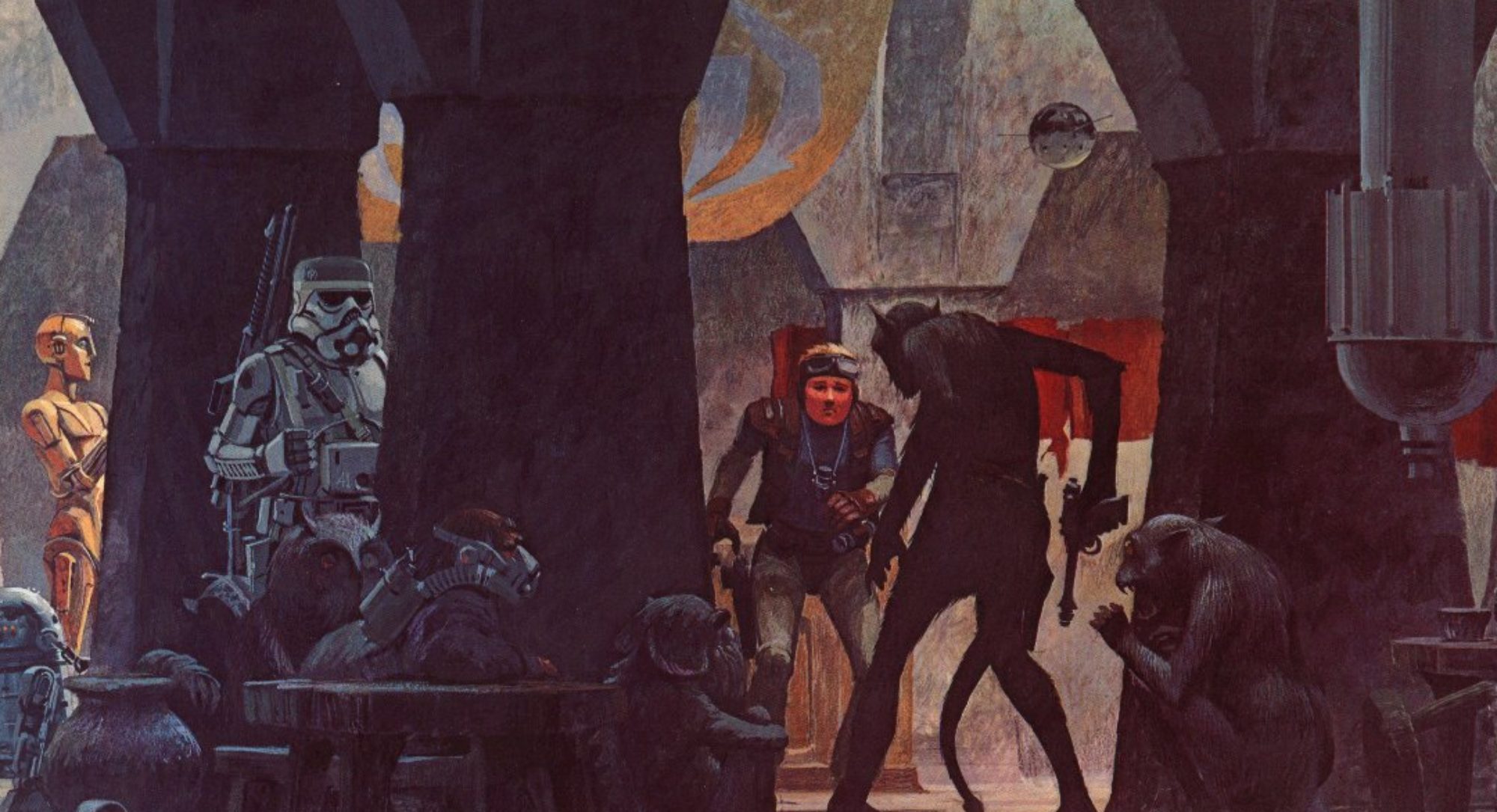A few days back, I tweeted about a blog post by former Adamant freelancer Malcolm Sheppard of Mob United Media: “Why You Can’t Have Nice Things.”
In the post, Malcolm talks about how the toxicity of the most vocal, negative segment of the online community (the segment most easily found, sadly) has chased away any hope of influence that the RPG community might have in the new media fields where you’d think they’d be valued:
“A couple of years ago I had this client — great guy, worked with him a few times. He’s a former tabletop RPG player and was really interested in bringing some of the ideas he loved from that into a new arena in the form of some cool online tools. We looked at the market at the time and determined that the service was pretty much tailor-made for roleplayers and that they were the most natural early adopters.
Once we got actual tabletop gamers from the “leading edge” of the hobby, he discovered they were so insufferable he changed his business model to stop attracting them. They were bad for business. They weren’t the gamers he remembered having fun with. They were assholes.
How were they assholes? My client used a bunch of methods to tag RPG players and monitor them moving through the system. This is what he found out about them:
- Instead of having social conversations, they focused on concrete goals.
- They related to content in a cynical fashion.
- They dissuaded other users from getting involved with the content.
- They resisted most desired behaviors (that is, the stuff that actually might make money).
- They complained all the goddamn time.”
It’s unfortunate, because the RPG community would seem to be a perfect fit for a lot of where online entertainment is headed. But I’ve seen the same thing in my discussions with transmedia producers — there’s more of an effort to draw away the best (non-toxic) elements of the community and convert them into a base for their efforts, rather than any attempt to engage with the community as a whole — and it’s entirely because of the negative stereotype, reinforced by the loudest segments online.
This post by Malcolm generated a little bit of commentary (including some absolutely delusional garbage from the “Indie” crowd about how the resistance to monetization was due to the fact that gamers are “artists.”).
Until today, when it became the subject of a thread on ENWorld, which has spurred 4 pages (to date), and increased commentary at the original blog entry.
Of course, the majority of it is a whole bunch of knee-jerking about how there’s nothing wrong, how they don’t know anybody like that, how Bad Businesses are Bad, and other crap which entirely misses the point.
What he’s talking about is that the WORST elements of the RPG community, as represented online, is sadly defining the segment for people OUTSIDE the community — even in those areas where RPGers should be valued.
…and that’s a bad thing.
A direct quote from his closing:
“I would really like the tabletop RPG community to be at the center of roleplaying in all media, sharing their insights, but it’s not going to happen unless that center attracts.”
The result of saying that? A negative pile-on by the usual suspects… aided and abetted by professionals looking to buff up their populist cred. (like Erik Mona from Paizo, coming in to call him an “idiot” — seriously)
Irony, thy name is Gamer.


For some reason, this blog wasn’t in my Google Reader feeds. This terrible, terrible oversight has now been corrected.
Malcolm is very sharp — in both senses of the word, which can turn a lot of people off. I’ve never seen him be WRONG, however.
I wonder how much the phenomenon of overly opinionated individuals is a result of the effects of role-playing on certain personality types. Simply put, because they can play being experts in a field, they come to believe they are experts in a field. After all, in theory, theory is just like practice, right?
To use a closely related example, there have been quite a few local wargames clubs which have failed over the years, usually die to the efforts of the same few people. These people all give the impression that they think they have the strategic acumen of Erwin Rommel and the strategic insights of Niccolo Machiavelli, when this is plainly not the case.
The interesting thing is that this nerdism is self-reinforcing. Firstly, because it tends to drive the “moderates*” away as they are more concerned with having fun than self-aggrandisement, and can’t be bothered getting involved in correcting the issue. Secondly, because it sets the tone for behaviour. It is the most visible sign of the club’s activities to outsiders. So the influx of further moderates dries up. Eventually the only people you find are the obnoxious unsocialised core that can cope with discourtesy. At which point the social cohesion of the group reaches zero and it falls apart (where upon they go looking to join the new group that the moderates set up, and the cycle repeats ad infinitum).
It seems to be endemic to social groups with a role-playing element, such as medieval re-enactment groups (often with added hypocrisy) and amateur theatre. Where, perhaps, when you start considering the customs of social interaction to be a game you play, it devalues their use in the real world.
And on certain sites, there is an idea of elitism and exclusivity that is intentionally off-putting to outsiders. Very similar to the wannerbes of the High Art crowd. It is from this sector that you generally hear phrases like “money is the antithesis of art” (which shows how uninformed they are since the antithesis is a vital component of the whole hypothesis). Meanwhile, most of the artists I know are worried about how they will feed themselves, their families, and buy the materials for their next project.
Oh well, just some idyll observations. I’ll stop now, before I seem an overly opinionated expert with nothing to back it up. besides, I’m probably mistaken. <grin>
[* I think that I use “moderates” intentionally, not necessarily in the sense of their viewpoints, which may well be radical, but rather in the physics sense that they act as a moderator and stop the reaction becoming super-critical and overheating. On the ‘net, their is very little chance of effective moderation. It is either severe (shutting down the discussion/viewpoint) or an attempt to inject a counter-reaction. Which simply means you have twice as much activity in the same vessel, to stretch an analogy to its breaking point.]
Hey man, it was your d20 pulp GMing supplement that I used as my example for art-in-RPGs, don’t knock down your own stuff too hard, what if I start to believe you?
Thanks a lot for taking up the ideas in the post and defending them against some pretty heavy shit.
What gets me about ENWorld in particular is that the community there have *always* been first-choice marks for whatever social media efforts WotC and other companies have been on about. I could practically hear Erik Mona’s thumbs flipping through a copy of The Cluetrain Manifesto. when he jumped in.
I did see that there was some genuine introspection going on in the end. I liked that. Hell, if I had the will to do it the next step would probably to create a place for that positive center I think is part of the hobby. But I’m kind of enjoying not really giving a shit right now — like, a lot.
Not a problem.
Thanks to a Twitter comment from Theron Bretz, this pretty much sums up my attitude to the whole thing:
Black Flag – “Rise Above.”
I’ve been blasting that with regularity today.
We ran into something similar when doing in-house software development — a (thankfully) small number of very vocal employees who had lots of hostility, but little useful to add, so we wound up going in circles. We didn’t start making progress until we deliberately decided to ignore them and engage some of the ‘silent majority’.
Entertainingly, the hostiles then became friendly. :)